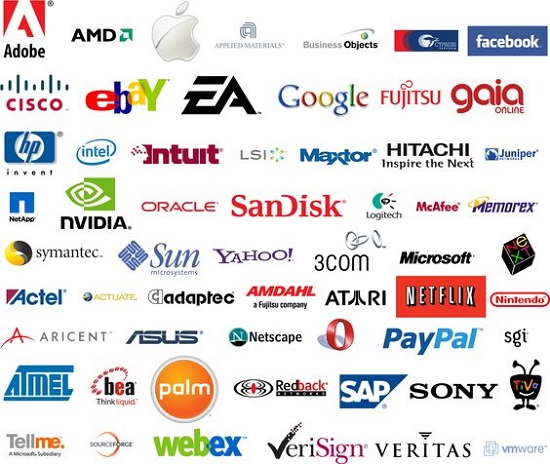Despite our repeated reminders that the multiple woes—especially housing prices, traffic gridlock, and long commutes—of tech companies’ building large staffs in the San Francisco/San Jose area, nearly all of these mainly-software organizations continue to ignore the logic of setting up new operations in other cities in the U.S. And these other cities would love to have them locate their operations in their respective cities. This phenomenon, coupled with the September 13 opening of the vaunted Cornell Tech in New York City, is so noticeable that Bloomberg Businessweek went to considerable effort to prepare a pictogram for its September 11 issue that includes about 300 metro areas (but they do not appear to be the 300 most populous cities in the U.S.) is so detailed that they couldn’t include it in their online version and an article apparently so basic that they couldn’t include it in their print version. On the horizontal (“good stuff”)axis it combined nine positive ways: rates of college education, science and engineering majors, top universities, headquarters of big tech companies, venture capital investment, share of jobs in computer-systems design and related services, broadband subscription rates, independent coffee shops (huh??),and commutes by bike/public transportation/on foot. On the vertical (“bad stuff”) axis it combined three negative ways: high home prices, lots of income inequality, and long drive times. It weighted these 12 ways equally (what else could they do?) and plotted a scattergram with city names as labels. In the upper lefthand corner (high on both good stuff and bad stuff) is the San Francisco/San Jose area (Silicon Valley), which is in the biggest “quadrant” (the quadrants are quite unequal in area) called “Both the good and the bad of Silicon Valley”. The upper righthand quadrant is “Unequal and expensive, but not techie”, the lower lefthand quadrant is “Tech without the downsides”, and the lower righthand quadrant is “ Least like the Bay Area”. The authors highlighted Boston (not surprisingly, due to its many good universities and Route 128 tech companies), Boulder, Co (high percent of households with broadband access), and Ithaca, NY (low housing cost). Ithaca??!! Well, it’s home of Cornell University which, together with partner Israel’s Technion, created Cornell Tech, and it’s the most techie of the Ivy League. (It’s also our home town, with nice summers, but awful winters … especially compared with Silicon Valley.)
Tag Archives: Apple
Sports More Important Than Technology Business in Silicon Valley Newspaper
The Mercury News’ demoting its business coverage to the back pages of the Sports Section was a populist victory even before Trump’s election. Or does this situation simply derive from the biblical truism “no prophet is accepted in his hometown”? In any case, the rest of the world—including major newspapers—seems more entranced with the goings-on in San Jose and surrounding cities. The New York Times and Wall Street Journal have permanent staff in Silicon Valley who seem to turn out significantly more column-inches of reporting and opinion about technological accomplishments in this geography than do the valiant-but-outnumbered technology staffers at the Mercury News.
This demotion came a few months after the April 2016 renaming of the San Jose Mercury News to to reflect its merger with the San Mateo Times. But the spirit of San Jose, which some years ago was dubbed “the USA’s largest truck stop”, lives on in the focus of its printed media. (Apparently a number of other cities in the U.S. claim that theirs is the largest, and a number of locations have subtitled themselves “Silicon XXXX”, like “Silicon Prairie” which can refer to Dallas-Fort Worth or the Chicago area or a multi-state area of the upper Midwest.) We are a bit baffled because the advertisements in the Mercury News don’t seem to be for products and services that the typical sports fan would buy.
Facebook and Google Create New Homeless People in Silicon Valley in 2016
They may not be sleeping on park benches, but they’ll never be able to afford a house in Silicon Valley. That’s because the household-word high-tech companies (Apple, Facebook, Google, et al) in the San Francisco Bay Area are adding jobs but no one is adding commensurate numbers of housing units, and the prices of homes is skyrocketing.
The iconic independent bookstore in Menlo Park, Kepler’s Books, and Peninsula Arts & Letters, sponsored a well-attended public forum, “Housing Crisis Stories”, on August 18, 2016. The motivation for the meeting was the disconnect between the huge number of new jobs being created by the giant high-tech companies like Facebook and Google and the tiny number of new housing units being created. According to the local paper, The Almanac (which covers the tony cities of Atherton, Menlo Park, Portola Valley, and Woodside), San Mateo County added 55,000 jobs but only 2,000 housing units (homes plus apartments) between 2010 and 2014. The main source of new jobs is these high-tech companies, but other real estate development is also favoring offices at the expense of housing units.
Except for me (in my TechnologyBloopers persona), who dealt with the new jobs, everyone dealt with the housing shortage. There appeared to be NO representatives from the nearby, Menlo Park-based, Facebook. Many of the attendees were either personally the victims of the rapidly-rising home prices or apartment rents, or were recounting stories of other victims. The poster child for these victims is a Palo Alto planning commissioner—a tech lawyer with a software engineer husband—who is resigning and moving to Santa Cruz because they can’t afford to live in Palo Alto and raise a family there.
Unfortunately, individually they have no power to escape their victimhoods. They will have to band together to elect officials who DO have some power. City Councils in those cities affected will need to be very proactive in forcing the tech companies and real estate developers to deal with the housing shortage. And neighboring cities need to cooperate with each other so that jobs created in one city (which result in revenue both to that city government and to retailers in that city) do not force other cities to deal with housing those new employees.
The problem seems to be a failure to optimize the OVERALL combination of jobs and housing. The technology companies are a big part of the problem and they need to be a big part of the solution. And one way those companies, at least the ones like Facebook and Google whose principal activity is software development (which can be done most anyplace), can be a part of the solution is for them to locate large portions of their staff in regional offices in cities far away from Silicon Valley.
There were some creative solutions mentioned, which would help add housing units, IF the groups concerned would cooperate to change the rules for zoning and construction. One was to build several floors of housing above parking garages. Another was to replace single-story strip malls with multi-level buildings having the retailers at ground levels and housing at the higher levels.
There was one additional issue that seems unique to Palo Alto and Menlo Park (among the cities on the San Francisco Peninsula), namely the gentrification of (formerly) low-priced residential housing in East Palo Alto and East Menlo Park, and the related issues of racism because of the relatively high percentage of people of color living in those cities. Fortunately, those cities were well-represented in the meeting, and hopefully their inputs will continue to be carefully considered as solutions to the jobs/housing are implemented.
Is Amazon the New Apple?
Will Apple topple from its perch as the world’s most valuable company? The stock market didn’t reflect Apple’s declining smartphone sales far enough ahead, which led to a drop in share price when year-over-year Q1 iPhone sales declined nearly 15%. And while the overall market grew about 4%, leader Samsung stayed flat, and a handful of Chinese companies rose ominously. Apple’s reliance on the iPhone for growth has become a weakness.
But there is another important consequence. If you look at total market capitalization (total shares times share price), Apple is declining rapidly and Amazon is rising rapidly. For the last 3 calendar quarters, the top 5 companies in the world have included only Apple, Alphabet, Microsoft, Amazon, Berkshire Hathaway, and Exxon Mobil, and the top 3 were only Apple, Alphabet, and Microsoft. But Apple’s market cap(italization) in 1Q2015 was more than double ANY other company, while in 1Q2016 there were 7 other companies with market caps over half of Apple’s. But In 1Q2015 Amazon was not in the top 10. It was #10 in 3Q2015, and #4 in 1Q2016 (getting profitable helped a lot). And Amazon is not dependent on one product line.
Can Thoughtful U.S.-Wide Economic Planning Enable Orderly Growth?
Skyrocketing house prices and apartment rents, long and slow commutes, overcrowded schools, etc. not only dramatically diminish peoples’ quality of life but can choke off economic growth in places like Silicon Valley. (And Silicon Valley is not unique; e.g., Boston has a similar problem.) What can be done about it? We need to think bigger, in terms of geography. Every sizable city or cluster of nearby cities has some form of LOCAL regional economic development authority. But those authorities are sub-optimizing. We believe that what is needed is a nationwide advisory council AND a change in thinking by large companies. Germany is a good example of what is possible. We can understand to some extent the economies of scale of microchip manufacturers for examples, but it especially baffles us that technology giants like Facebook, Google, Oracle, eBay, and LinkedIn, which are principally software companies, insist on building mega-campuses in Silicon Valley. Seems to us that—using their own technology and realizing that software can be written anyplace—they could do large portions in regional centers. Even Apple, who farms out much of their manufacturing to Chinese companies like Foxconn, very likely would benefit if their employees spent more time working and less time commuting to their new giant building (which will almost certainly exacerbate the already horrendous traffic jams in that area).
There are lots of other attractive cities in western states with a critical mass of local services and attractions that would welcome an influx of well-paid, well-educated employees: for example, Austin, TX; Denver, CO; Seattle, WA; Portland, OR, Los Angeles, CA; San Diego, CA; Sacramento, CA; and Phoenix, AZ. Similarly for eastern states.
Will There be a Useful Truce Among Ads and Ad Blockers and Ad Blocker-Blockers?
History buffs may liken this situation to the spy-and-counter-spy among countries. It surely seems to us at Technology Bloopers to be a great waste of resources and a great inconvenience to the more than 3 billion current users of the Internet today. Most users have already been spoiled by the “free” goodies they enjoy in return for their viewing increasing volumes of advertising. This arrangement has been around for at least 150 years in newspaper and magazine publishing, although most of the important hard-copy publications make their revenue from a combination of subscription fees and advertising purchases. By contrast, the much more recent Internet is mostly free to users and paid for by advertisers. Some interesting exceptions are Wikipedia, language-learning site Yabla, and purchase or rental of plugins and themes for WordPress. In the opinion of Technology Bloopers, there are many Internet sites for which users would pay reasonable fees, which would reduce the conflict among the titans of Silicon Valley. Google has contributed great gobs of technology but financed it heavily with ads. But users have had their fill of ads, leading to a rapid growth of ad blocking software. And some of the ads are so intrusive (the ones on SpanishDict.com are the worst in our experience, interrupting users with highly-distracting audio and video) that they cry out for ad blockers … and boycotting of such sites in favor of more ones that are less obnoxious. The advertisers have been spooked by this software, leading to a rapid growth of software that undoes the blocking. Most recently Apple has jumped into the fray with its own ad blockers, which is a welcome counter-force, though actually Apple has its own ads buried in its Apps, so the only beneficiary is Apple, while Google loses business and consumers continue to be annoyed by ads.






